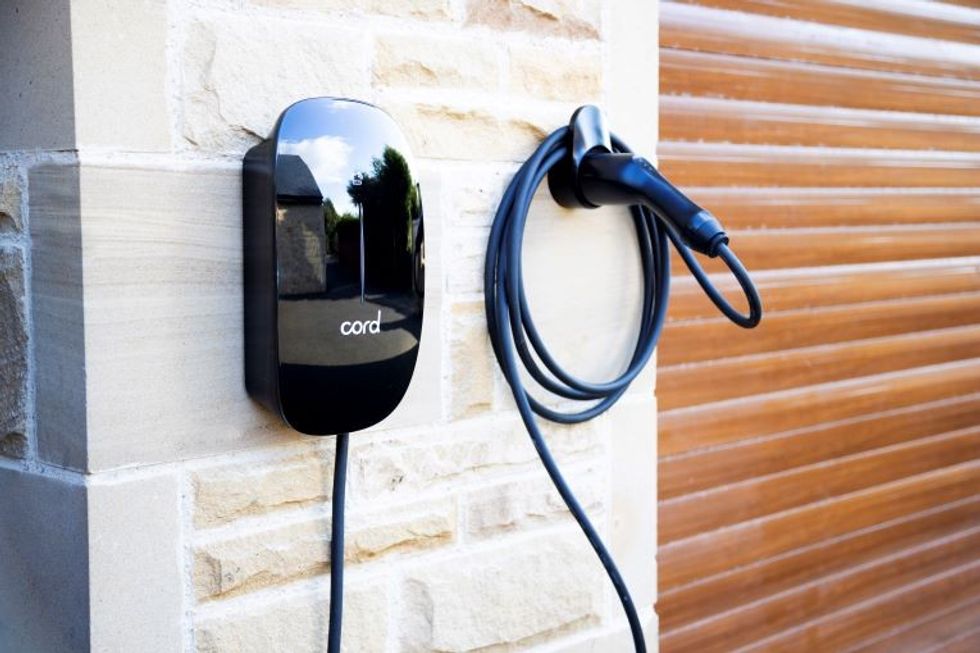Drivers can now spend less than 5p per kWh when charging at home
GETTY
'Savvy EV drivers will have scoped out the best deals across energy providers to bring their costs down further'
Don't Miss
Most Read
Trending on GB News
Electric vehicle owners can now charge for less than five pence per mile in what has been described by industry experts as a huge benefit for motorists.
New research has found that electric car drivers on Standard Rate domestic tariffs are now paying less than 5p a mile, as of July.
This follows the two-pence reduction in the Energy Price Cap which was introduced on July 1, 2024, although things could change in October when prices rise again.
According to the AA EV Recharge Report for July, the 5p level is the "worst case scenario" as the Price Cap level, since EV drivers with cheaper tariffs can get cheaper costs during off-peak times, generally overnight.
Do you have a story you'd like to share? Get in touch by emailingmotoring@gbnews.uk

Drivers could see major savings when using an EV-friendly tariff at home
CORDIn December 2022 when the first EV Recharge Report was launched, the price to charge an EV domestically was 7.99p a mile - 61 per cent higher than it is now (4.97p).
Generally, the cost of all charging speeds across the public charging network remained stable, compared to the price of petrol which rose by 0.5p between June and July.
As of July, it will cost £30.80 to add 80 per cent of charge to a vehicle using an ultra-rapid charger in public, much cheaper than the equivalent £46.43 with a petrol car.
When using a domestic charger, it will cost just £8.80 to add 80 per cent charge, meaning drivers charging from home can save five times as much money compared to the £46.43 it would cost to fill a petrol vehicle.
Jack Cousens, head of roads policy at The AA, said: "Driving an EV for less than five pence a mile is a landmark moment and shows just how cheap running an EV can be.
"As this is the cost based on the Standard Variable rates, savvy EV drivers will have scoped out the best deals across energy providers to bring their costs down further."
It is estimated that just 15 per cent of electric vehicle drivers charge in public, with the rest relying on chargers at home or their workplaces.
The location of chargers is also key as motorists can plan longer trips around the cheapest chargers available to them along their journey.
However, the expert warned that the positive feedback will be short-lived following the announcement from Ofgem that the price of domestic electricity will rise to £1,717 - a 10 per cent increase compared to levels set between July 1 and September 30.
This will see electricity prices rise from 24.5p per kWh, in addition to 60.99p for a daily standing charge - a hike compared to the 22.36p per kWh and 60.12p daily charge.
Cousens noted how this would "put fear into households", although electric car owners could avoid the worst of the expensive costs, with it staying lower than levels seen in previous winters.
He added that it is hoped the electricity price uplift will be "temporary", highlighting how it will be cheaper than the peak costs seen in 2022 when Russia first invaded Ukraine.
LATEST DEVELOPMENTS:

Ofgem's energy price cap hike is a blow to millions of households
GETTYAverage fuel prices also remain relatively high, although there is optimism that petrol and diesel costs will continue to fall in the coming weeks and months.
One litre of unleaded petrol will cost drivers 142.61p, while diesel drivers will be asked to fork out 147.46p per litre.








